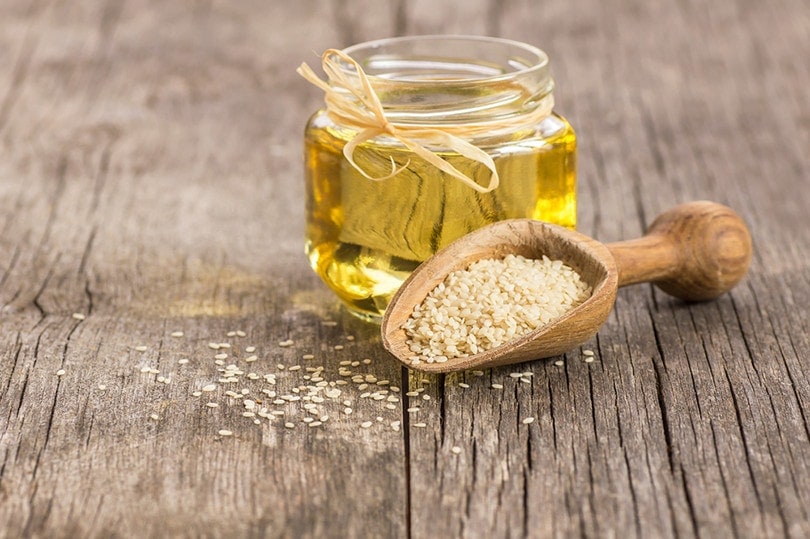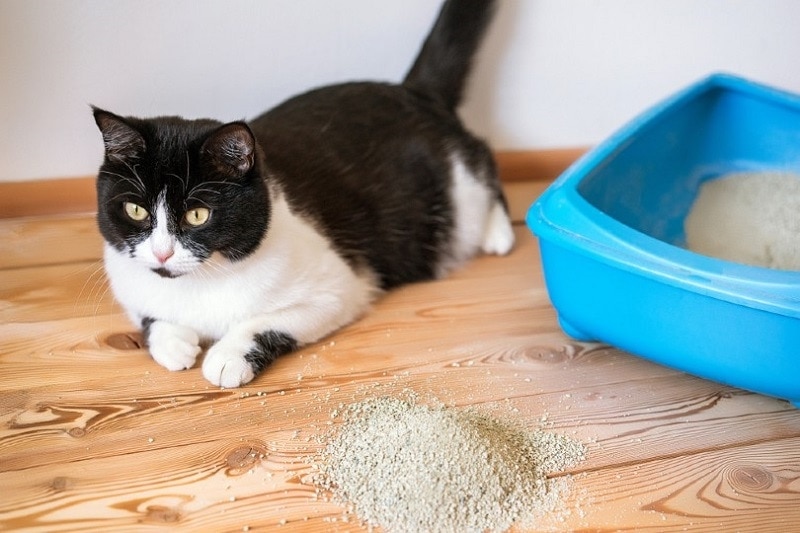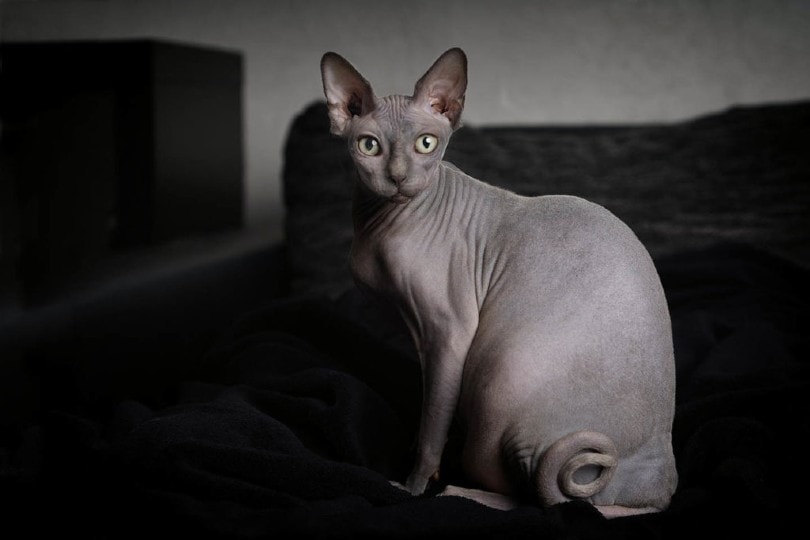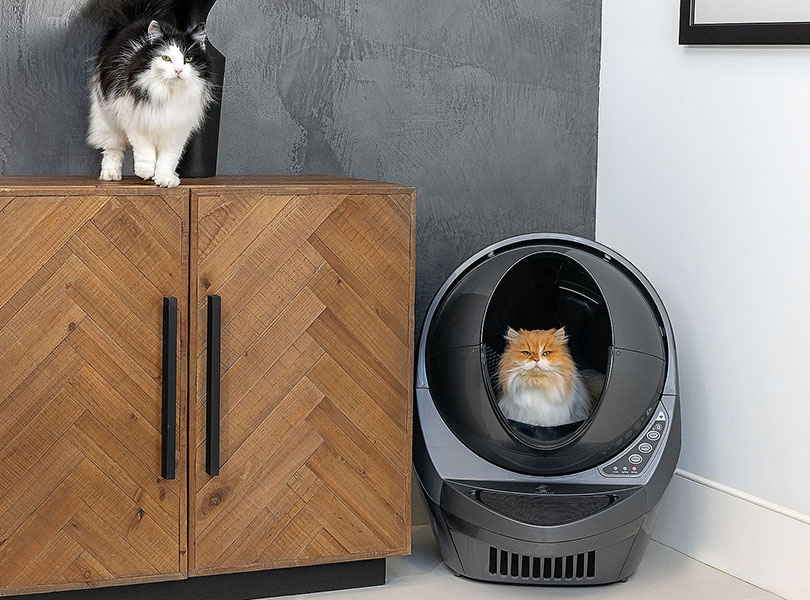Can Cats Drink Sesame Oil? Vet-Reviewed Nutrition Facts & Potential Risks

Updated on

You may try to keep your cat from eating things they shouldn’t, but cat owners know that these frisky felines can be sneaky. Walking into the kitchen, you may see your cat up on the counter sampling your ingredients for dinner. Sometimes, they steal food from our plates before we can stop them.
As a responsible cat owner, you want to know that what your cat is eating won’t hurt them. Sesame oil is an ingredient found in many dishes. If your cat has a bite of food made with sesame oil, is it safe for them? If sesame oil is left on your plate and your cat licks it up, will this hurt them?
The good news is that sesame oil is not toxic to cats. In moderation, it’s safe for cats to consume and may even have some health benefits for them. Always check with your vet before you add any ingredient to your cat’s diet. Let’s find out more about this oil.
Sesame Oil Uses
Sesame oil is primarily used to add flavor to roasted vegetables, as an ingredient in salad dressings, and to add depth to stir-fry dishes. It’s used to sauté meats and it’s a common ingredient in marinades. It can even be drizzled over popcorn and ice cream for a unique flavor option. Sesame oil is made from raw sesame seeds. It can be used as a frying oil and has a nutty, earthy flavor.
You can also find sesame oil made from roasted sesame seeds. The toasting process draws out more of the flavor, making the oil darker in color with a richer taste. This oil is not suitable for frying because it can become bitter and unpleasant to eat.
Even if your cat has not consumed pure sesame oil, they may have eaten a piece of food that was cooked in it.

Sesame Seeds & Cats
Since sesame oil is made from the seeds, it’s important to know if they’re safe for cats, too. While sesame seeds are fine for your cat to consume sometimes, this shouldn’t be a regular occurrence.
Sesame seeds are produced by the Sesamum indicum plant. This plant is used all over the world for its medicinal and nutritional purposes. The seeds are rich in oil and high in omega-3 fatty acids, calcium, fiber, antioxidants, and protein.
Due to their high fat and calorie content, cats shouldn’t eat sesame seeds regularly.
Dangers of Sesame Seeds for Your Cat
Sesame seeds are very small. They can get stuck in your cat’s teeth and lead to oral problems. Even worse, they can get stuck in your cat’s throat. While they may not cause your cat to choke, they will certainly cause them some discomfort.
Sesame seeds are rarely eaten alone. They’re used as toppings for bread and bakery items. They’re also used as ingredients for condiments and spices. Even if the seeds themselves aren’t toxic to your cat, they could be a component of food, that is. If sesame seeds are combined with other ingredients, always make sure your cat can safely eat every part of the food.

Sesame Oil & Cats
Sesame oil contains no harmful components to your cat. If they happen to lick the oil or eat food that was made in it, it’s not toxic to them. Lubrication from the oil could technically help combat your cat’s hairballs, however, if your cat has a hairball problem, you should check with your vet as to the best course of action.
Sesame oil contains the antioxidants sesamol and sesaminol. Antioxidants can help protect cells from the damage of free radicals. A study found that rats that were given different doses of sesame oil for 30 days and then exposed to oxidative damage in their heart muscle cells, were protected against it.
Another study showed that rats eating sesame oil for 42 days reduced their blood sugar levels. While scientific studies on the benefits of sesame oil for cats are lacking, it’s a healthy fat that your cat can consume in moderation.
How Much Sesame Oil Can My Cat Have?
Cats can consume tiny amounts of sesame oil occasionally. The oil isn’t toxic to them, however, too much oil in a cat’s digestive tract may have a laxative effect. If they consume too much, they could end up with episodes of diarrhea.
If you’re feeding your cat a high-quality complete and balanced diet that is appropriate for their age, you don’t really need to supplement your cat with oil. Generally speaking, half a teaspoon per week of oil is approximately the maximum your cat could have. Cats can eat this oil as an ingredient in other foods. If you’re looking to add sesame oil to your cat’s diet, speak to your veterinarian first about the amount your cat should have based on their health issue, age, and weight.

Conclusion
Sesame oil is safe for cats to have in small doses. A tiny amount could be added to their food to help with hairballs and constipation under your vet’s supervision. Sesame oil is also filled with fiber, vitamins, and antioxidants that can be beneficial for your cat to have. Sesame oil is made from sesame seeds, which are also safe for your cat to eat.
Large amounts of oil could have some side effects. An upset stomach and diarrhea can occur if your cat consumes too much sesame oil. Start with just a few drops first to see how your cat tolerates the oil and if it is enough to solve the problem. If in doubt, make sure you check with your vet if sesame oil is indicated for your cat’s needs.
Always consult your vet first if you’d like to introduce something to your cat’s diet.
Featured Image Credit: Halil ibrahim mescioglu, Shutterstock











